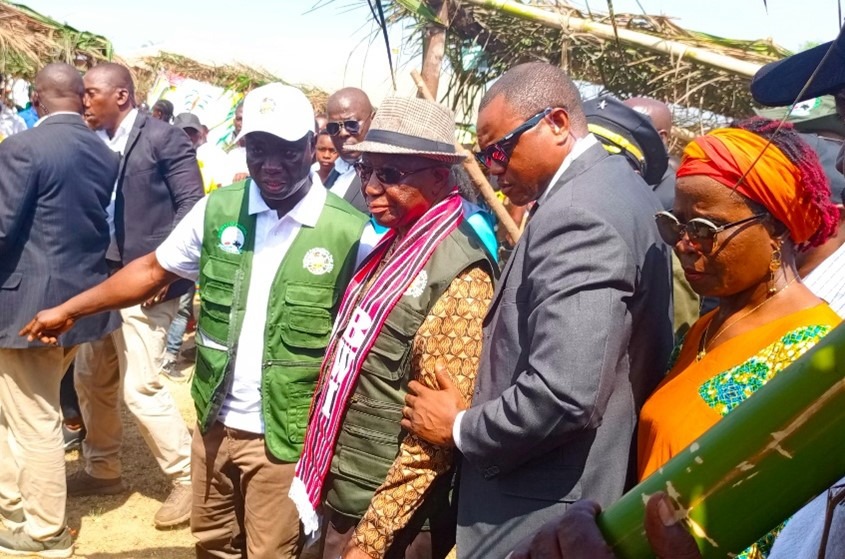President Joseph N. Boakai’s first year in office has been marked by a series of controversies and challenges, casting a long shadow over his administration and raising concerns about its trajectory. Accusations of corruption, echoing the very criticisms leveled against the previous administration, have dogged Boakai from the outset. These allegations, coupled with questionable procurement deals and a disregard for the rule of law, have fueled public skepticism and eroded trust in the government’s commitment to transparency and accountability. The burning of the Capitol Building amidst a contentious speakership dispute further exacerbated the political climate, adding another layer of complexity to an already turbulent first year.
The procurement of 285 pieces of earthmoving equipment, while presented as a forward-thinking initiative for road construction and rural development, has been mired in controversy. Lack of transparency surrounding the deal’s financing has raised red flags, drawing comparisons to a similarly ill-fated deal under the previous administration. Critics, including legislators, opposition figures, and civil society organizations, have questioned the government’s motives and adherence to due process, highlighting a concerning pattern of opaque dealings that undermines public confidence. While some laud the administration’s focus on infrastructure development, the cloud of suspicion surrounding the procurement process overshadows the potential benefits.
The pervasive allegations of corruption have led to the dismissal of several high-ranking officials within Boakai’s administration. Ministers have been suspended for extravagant spending and self-serving financial practices, further reinforcing the perception of widespread corruption within the government. The suspension of over 450 officials for failing to declare their assets, as mandated by law, underscores the administration’s struggles with accountability and adherence to established regulations. These actions, while ostensibly aimed at addressing corruption, occur against a backdrop of widespread economic hardship, with many citizens struggling with unemployment, healthcare costs, and educational expenses. The government’s own financial woes, including unpaid debts to neighboring countries and a high domestic debt burden, add to the sense of fiscal mismanagement and misplaced priorities.
The burning of the Capitol Building stands as a dramatic symbol of the political turmoil that has characterized Boakai’s first year. The administration’s alleged involvement in the legislative impasse, which sparked the incident, has drawn sharp criticism. Despite a Supreme Court ruling urging a return to the status quo, the executive branch has continued to engage with the disputed majority bloc in the legislature, further fueling the conflict. This defiance of the court’s decision raises serious concerns about the administration’s respect for the rule of law and the separation of powers, setting a dangerous precedent for future political disputes.
As President Boakai embarks on his second year in office, he faces the daunting task of addressing the numerous challenges and controversies that have plagued his first year. The allegations of corruption, the questionable procurement practices, and the political turmoil surrounding the legislature all demand decisive action and a demonstrable commitment to transparency and accountability. The administration’s ability to navigate these complex issues will determine the course of Boakai’s presidency and ultimately shape his legacy.
The coming years will be a critical test of Boakai’s leadership. He must demonstrate a genuine commitment to addressing the concerns raised during his first year, fostering trust with the public, and steering the country towards a more stable and prosperous future. The success of his presidency hinges on his ability to learn from the mistakes of the past, prioritize the needs of the citizenry, and uphold the principles of good governance. Only through decisive action and a genuine commitment to reform can Boakai hope to overcome the challenges of his first year and build a legacy of positive change.














